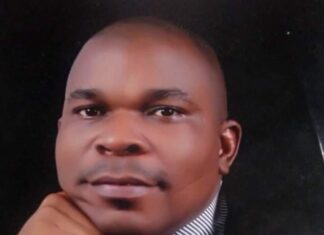Two illustrious Nigerians with towering reputations for integrity were in the news last week.
Muhammadu Buhari, the presidential candidate of the All Progressives Congress (APC), was in far away London for a working visit. Some 4,247 kilometres away, President Goodluck Jonathan and former heads of state flew to Shagari village in Sokoto State on Wednesday, February 25 to celebrate with one of their own, former President Shehu Shagari at 90.
The path of Shagari and Buhari had crossed in December 31, 1983 when the army officer overthrew the civilian government of Shagari, accusing it of corruption and electoral fraud, among others.
Some 32 years later, it is ironic that while one is celebrating his 90th birthday in retirement, the other is on the streets canvassing votes for a presidential mandate.
At 90, Shagari has every reason to be grateful to his Creator and be proud of his achievements. Born on February 25, 1925, he served as President between October 1, 1979 and December 31, 1983.
A Northerner of Fulani extraction, Shagari, who holds the aristocratic title of Turakin Sakkwato in the Sokoto Caliphate, briefly worked as a teacher before entering national politics in 1954 when he was elected into the House of Representatives.
He was a founding member of the Northern People’s Congress (NPC), which won the 1959 national parliamentary election. From then on, there was no dimming his shinning political star.
Shagari was appointed Parliamentary Secretary to the Prime Minister, Abubakar Tafawa Balewa, and later held the positions of Minister of Economic Development (1960), Minister of Internal Affairs (1962), and Minister of Works and Survey (1965).
It was a measure of humility for a man who had attained such dizzying national political heights that when the First Republic was cut short by a military coup on January 15, 1966, Shagari returned to Sokoto to work on his farm and later as a Councillor for the Sokoto Native Authority.
However, four years later, he returned to national politics when, in 1970, as part of a movement to broaden the government, Yakubu Gowon appointed him Minister of Economic Affairs and later of Finance.
When Shagari won the presidential election in 1979 on the platform of the National Party of Nigeria (NPN), his administration made housing, industries, transportation, and agriculture its major focus. Despite some successes, these programmes were heavily plagued by corruption.
Just as it is today, Shagari’s era was enmeshed in many problems, some of them self-inflicted. The fall in oil price that began in 1981 affected the finances of the government.
Shagari initiated an Economic Stabilisation Programme to help protect the country and to steer the economy towards positive growth. The key objectives of the programme were to limit import licences, reduce government spending, and raise custom duties.
But allegations of corruption, fraud in the 1983 elections, decline in world oil prices, dwindling national finances, and endemic religious and political violence made the government unpopular. They led to the coup that overthrew Shagari and brought Buhari to power.
The paradox of Shagari’s Presidency is that why most Nigerians to date attest to his incorruptibility, his government did not live above board. Key members of his government as well as leaders of his party were busy flaunting unearned wealth even as the country sunk deeper into poverty.
It was apparent that Shagari had no control over most of his ministers. There were too many centres of power in one government. The impunity was stretched to its limits during the 1983 elections which the NPN won “moon-slide” through unconscionable rigging.
Such was the outcry against the poll that Nigerians danced on the streets when the military junta led by Buhari struck.
But out of power, Shagari has played quintessential statesman, keeping out of partisan politics and only intervening when it is absolutely necessary.
He has become a role model to the younger generation, telling them by his lifestyle that one does not need to loot the treasury to live a fulfilling post-retirement life.
At 90, Shagari, no doubt, has seen it all. He has played an ennobling role in our national life. He has become a national icon.
TheNiche wishes him many more happy years ahead in good health.













